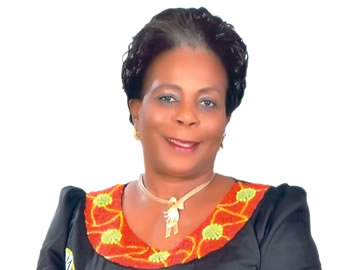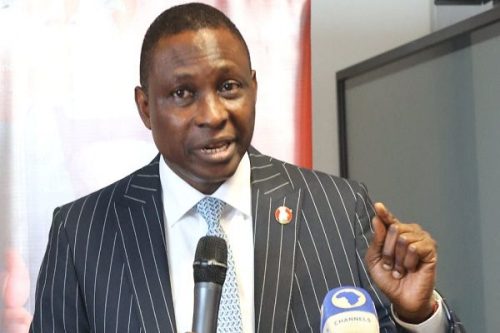EQUAL OPPORTUNITY BILL: CSOs, NGOs oppose passage of bill

In a swift reaction to the recent rejection of the controversial Gender and Equal Opportunity Bill sponsored in the Senate by Senator (Mrs) Abiodun Olujimi (PDP, Ekiti-South) for lack of merit, a massive assembly of Civil Society Organisations (CSOs) and Non-Governmental Organisations (NGOs) in Lagos congratulated the National Assembly (Nass) for throwing out the bill.
At a press conference held at Bishop Crowther St, Surulere in Lagos last Friday, office of the Project for Human Development (PHD), the Foundation for African Cultural Heritage (FACH), leading about 18 other NGOs and CSOs, in a release said, “We are vehemently opposed to the representation of the Bill in the Senate because the Bill is contrary to the provisions of the 1999 Constitution and incompatible with the language of the Convention on the Right of the Child CRC (1989) and in particular, the language of African values with the language of African Charter on Human and People’s Rights (1981) which upholds the human rights of both the child and the mother.”
Key speakers at the conference in one voice said those applauding the Bill simply do not understand the Bill. “They mistake the Bill for a Bill promoting equality between men and women. They think that the Bill is simply aimed at promoting the economic, political and cultural empowerment of the Nigerian women. However, a dispassionate study of sections of the Bill reveals otherwise,” said Dr Nkechi Asogwa (FACH).
A joint resolution documented and made available to journalists states categorically that:
The most offensive aspect of the Bill is that it seeks to incorporate and enforce in Nigeria the provisions of the Protocol to the African Charter on Human and People’s Rights on the Rights of Women 2003 (otherwise simply called the Maputo Protocol) and the Convention on the Elimination of all Forms of Discrimination against Women (CEDAW).
Previous attempts at National Assembly to domesticate Maputo Protocol and CEDAW were met with stiff oppositions at the National Assembly. Article 14 (2)(c) of the Maputo Protocol legalizes medical abortion at all stages of pregnancy without exception. CEDAW is foreign law. CEDAW is anti-family. CEDAW is anti-Nigerian cultural heritage. Articles 12 and 16 of CEDAW clearly endorse abortion and infanticide. If the United States hasn’t ratified CEDAW, why should Nigeria embrace CEDAW?
Senator Olujimi’s Bill has no respect for the religious and philosophical convictions of the Nigerian people. Clearly sections 3(b) (c), 4, 5, 6, 7, 12, 14, 17, 18, 21, 22, 23, 24 should be expunged from the Bill. Section 7 promotes gay practices and gay marriage in Nigeria in violation of Same Sex (Marriage) Prohibition Act 2014.
Sections 12 (c) and 17 (e) of the Bill seek to legalize abortion in Nigeria contrary to the Nigerian laws and the religious, cultural and philosophical convictions of the Nigerian people.
The Bill is the most harmful Bill anybody can sponsor in the Senate. Clearly, the foreign sponsors of the Bill have introduced dodgy words and euphemisms in the Bill to deceive Nigerian lawmakers and conceal their real intentions. For example, section 7 of the Bill requires that “the social and cultural pattern of conduct of men and women in Nigeria should be modified to avoid ‘gender stereotyping’.
This section 7 clearly seeks to legalize gay practices and gay marriage in Nigeria contrary to the Same Sex (Marriage) Prohibition Act 2014. “Gender stereotyping” connotes gay rights. That is why many United Nations Member States kick against the phrase because they know that it has to do with legalization of gay practices and gay marriage.
As we speak, there are about seven (7) genders recognized at the United Nations. There is male gender, female gender, gay gender, lesbian gender, transgender female, transgender male and bisexual gender. So, what does Senator Olujimi mean by the word ‘gender’?
The Bill seeks to impose a Unitary law of inheritance of property on all the multi-cultural sections of the Nigerian society. It fails to recognize the different cultural varieties and differences affecting women rights in different parts of Nigeria. Most of the laws that govern family relations today in Nigeria are legislations enacted in the different States. That is why the Nigerian Law Reform Commission has said that inheritance and family issues are issues within the legislative competence of the different States.
The way out
The Bill should not be RE-REPRESENTED as the Senate President suggests. Why? Because the Bill is unconstitutional. It is incompatible with the language of African Human Rights Charter. The Bill is superfluous because different Nigerian States already have their different laws dealing with inheritance and empowerment of women.
Alternatively, the long title of the Bill and sections 3(b) (c), 4, 5, 6, 7, 12, 14, 17, 18, 21, 22, 23, 24 should be expunged completely from the Bill.
It would be recalled that Senator Oluremi Tinubu, wife of the national leader of the APC, Senator Bola Tinubu, recently lamented on the floor of the Senate that the present government has failed the women population.
In a chat with The Daily Times after the confab, legal practioner, Barrister Nkem Agboti for the Doctors Health Initiative (DHI) reacted to a section of our female law makers pressing for representation of the bill. How do they think the fight will go?
“My problem with the bill is that it is a bit superfluous in that a lot of its contents are already in our constitution, already in our criminal code, in the Marriage Act, the Maintenance Act and the Labour Act among others and all these laws put together already set a very wonderful frame work for gender equality, so why do we need this bill?”
On the future of the debate, the Barrister agreed the bill would be a tough sell with Nass because of its parochial attitude.
The lawyer also agreed that though these laws are already in the legal framework, they are inoperative and the gender issue is as good as non-existent, legally speaking.
“I think that is a very valid point; unfortunately Nigeria is a place where the majority of people, when they have any kind of legal grievance typically don’t go to court, not even to the police; a lot of us just become victims often times but my question is this: if we are having problems with enforcement, the solution is not to inject fresh laws. If we can’t enforce existing laws, why do we think we’re going to be able to enforce fresh laws?”
Her advice to Nass and SCOs
“I advise Nass and the SCOs to ignore this bill; it has already been thrown out and I don’t think they should give further time for the bill to be reintroduced.
“Secondly I advise the civil society to look at how we can promote a society where the laws that are in place are operative, they are usable and active; there’re not just there in our volumes of laws but there is something we can recourse and rely on to get justice done when we are looking for it. I think that’s the angle we should take: how can we make the existing legal frameworks usable and workable?”
With the kind of structure we have in the polity, how do you really think it will work?
“I don’t want to be pessimistic in terms of government right now, I am a patriotic Nigerian; I support our government and I have faith in our government but I also think that civil society organisations have a big role to play in social change.
“It is the CSOs that should inform people in the government, get to bring out the realities and help people see what’s going on outside of the three arms of government in Abuja. So I believe in our government, I think we just need to support and enlighten them and get the outcome that we need.”
The communiqué issued by the organisers was signed by Mrs. Ginika Abogwalu for FACH on behalf of 18 other NGOs and CSOs including Project for Human Development (PHD), Global Pro-life Alliance (GPA), Doctors Health Initiative, Happy Home Foundation, Association of Concerned Mothers, Nigerian Life League, Islamic Education Trust, Association of Catholic Medical Practitioners of Nigeria, Islamic Medical Association of Nigeria, Blissful Life for Youth Empowerment, Nigerian Association for Women Advancement, Catholic Lawyers Association, Sympathy Worldwide Organization, Life Choice International Initiative, Good Parenting and Youth Empowerment Initiative, Centre for Corrections and Human Development, Islamic Platform of Nigeria.










